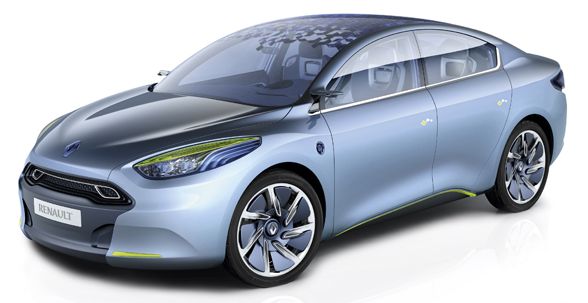Renault rapped for UK electric car advert
12 May 2010
French carmaker Renault has been ordered to change a UK advert for its forthcoming range of electric cars as it was considered misleading by citing figures based on the French electricity generation mix, which relies more on clean nuclear energy.
 |
| The Fluence ZE Concept: not quite as clean on British roads as on French (Image: Renault) |
Renault plans to launch four models of all-electric Zero Emission (ZE) vehicles by the end of 2012: the ultra-compact Twizy ZE; the Zoe ZE hatchback; the Fluence ZE saloon; and the Kangoo ZE small van.
In a UK national press advertisement, Renault claimed that the "well-to-wheel efficiency of a Renault Fluence ZE will help reduce CO2 emissions by at least 90% compared to a current diesel model," the 1.5-litre Megane Hatch. However, in the small print Renault said that this calculation was based on French figures, where the majority - some 75% - of electricity is produced by nuclear power plants.
The UK's Advertising Standards Authority (ASA) received a complaint from a reader who said that the advert was misleading because the 90% figure was based on the French electricity mix, not on the UK's, which relies on nuclear energy for only about 18% of its electricity.
In a hearing, Renault told the ASA that the ad was part of a European-wide campaign, which used the reference to the French average electricity mix. The company said the ZE models would be available on the UK market from 2011 onwards and maintained that the ad attempted merely to draw comparisons between internal combustion engines and their effects versus electric vehicles. Renault pointed out that it qualified the claim in the footnote and believed anyone reading the ad as a whole would not be misled in any way.
However, the ASA considered that "readers were unlikely to understand the difference between electricity generating mixes in France and the UK and how that would affect CO2 savings in different countries." It added, "Because the figure was not representative of CO2 savings typically available in the UK, we concluded that the ad was likely to mislead."
It therefore upheld the complaint and ruled that the ad "must not appear again in its current form."
Researched and written
by World Nuclear News